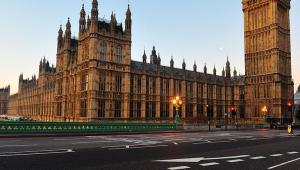17 December 2008
By Tash Shifrin
Prime Minister Gordon Brown has retained plans to put the civil service on a statutory footing and a series of public service reforms in his slimmed-down Queen's Speech – but housing measures have been dropped.
The speech was pitched as one to aid the economy, centred on a new Banking Bill. The widely trailed Welfare Reform Bill, with a sharp tightening of the benefits regime, was the other flagship measure.
But long-awaited moves to enshrine in law the traditional values of the civil service – such as impartiality and objectivity – will now be brought before Parliament in a Constitutional Renewal Bill. A draft Civil Service Bill published in 2004 never made it to the statute books.
The government has yet to respond to a joint parliamentary committee report on the draft legislation, although the Bill is expected to include a special advisers' code to prevent them from authorising expenditure or telling civil servants what to do.
Tony Wright, chair of the public administration select committee, which has been pressing for the legislation, told Public Finance: 'It's essential we get progress on the civil service aspects of this as quickly as possible. There is widespread consensus on this. It is unfinished constitutional business – the prevarication has gone on long enough.'
The Civil Service Commissioners also urged the government 'to find parliamentary time' to ensure the Bill is debated.
But Guy Lodge, senior research fellow at the Institute for Public Policy Research think-tank, warned of a danger that putting the civil service 'in its current format' into statute would 'make it more difficult to deliver the fundamental reform the civil service needs'.
A Local Democracy, Economic Development and Construction Bill will include the expected measures to encourage greater public involvement in council decisions and a new duty on local government to assess local economic conditions. It will also allow Multi-Area Agreements to be given a statutory basis.
But opposition MPs attacked the government for dropping plans to give social housing tenants more choice and for failing to address the escalating housing crisis.
Shadow housing minister Grant Shapps said: 'This is a lost opportunity to introduce practical measures to help kick-start the housing market and protect families from having their homes repossessed.'
Liberal Democrat housing spokeswoman Sarah Teather added: 'It is staggering that the government did not even mention housing in the Queen's Speech.'
Other measures include allowing councils to charge local firms an extra 2p per £1 of rateable value under a Business Rate Supplements Bill; a Health Bill to introduce 'quality accounting' for health services, and give patients a say in commissioning; and a Children, Skills and Learning Bill. A Policing and Crime Bill would allow elected committees to oversee policing – a move strongly opposed by the Local Government Association.
PFdec2008



















